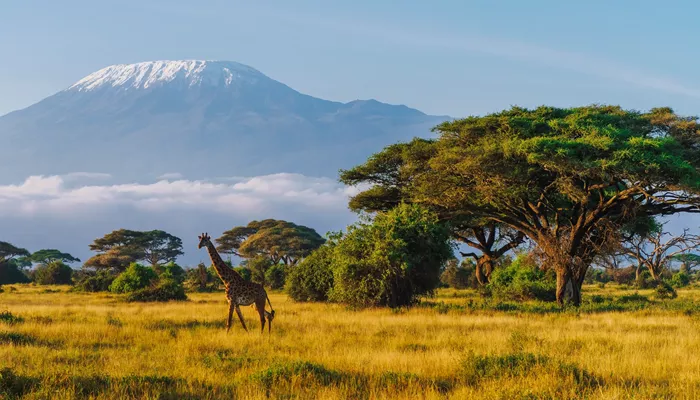Kenya Welcomes Digital Nomads with New Visa Program.
Kenya has long been a top travel destination in Africa, attracting diverse visitors. Wildlife enthusiasts venture to Masai Mara for unforgettable safaris, beach lovers explore the pristine waters of the Lamu Archipelago, and urbanites enjoy Nairobi’s vibrant culinary and art scenes.
Now, the East African nation is reaching out to remote workers worldwide with its new digital nomad visa. On October 2, President William Ruto announced this remote work permit, allowing digital nomads to “live and work in Kenya while enjoying the country’s natural beauty and high-quality lifestyle.
Kenya joins several other countries, including Japan, Thailand, South Korea, Turkey, and Italy, which have introduced digital nomad visa programs this year to attract long-term visitors.
To apply for the Kenyan digital nomad visa, remote workers must provide proof of several requirements, as reported by Euronews. These include (1) a valid passport, (2) remote employment with a company outside Kenya, (3) accommodation in Kenya, and (4) a clean criminal record. The minimum annual income needed to qualify for the visa is $55,000.
To support digital nomads, the Kenyan government plans to enhance its fiber optic network, improving internet connectivity throughout the country. President Ruto stated that this initiative aims to make it easier for remote workers to stay connected.
Deborah Calmeyer, a top travel specialist at Condé Nast Traveler and CEO of ROAR Africa, remarked that “Kenya has seen significant growth in connectivity and digital access in recent years, with some of the best internet speeds on the continent.” She noted that while major hubs like Nairobi, Mombasa, Kisumu, and Nakuru have the best connectivity, even rural areas like Eldoret, Nyeri, and Nanyuki have reliable internet access through 4G mobile networks.
This robust infrastructure has fostered a thriving entrepreneurial spirit in Kenya, according to Calmeyer. She highlighted the presence of tech hubs, startups, and co-working spaces throughout the country. “Kenyan innovators often create affordable and scalable solutions to challenges such as water scarcity, renewable energy, and sustainable agriculture,” she added, encouraging nomads to consider how their work can positively impact global issues.
During the same conference, President Ruto announced an electronic travel authorization for visitors with long layovers, enabling them to leave the airport and explore the city during their wait.
This announcement follows Kenya’s decision to implement a “visa-free” policy for foreign visitors starting in 2024, simplifying the application process with an electronic travel authorization system. The government aims to boost tourism and establish Kenya as the most visited country in Africa. In 2023, the country welcomed over 1.9 million international visitors, nearly recovering to 2019 levels, with further growth expected in 2024.
“Tourism is the heartbeat of Kenya, essential for its people, wildlife, and landscapes,” Calmeyer stated. “It supports livelihoods, preserves cultural heritage, and safeguards ecosystems for future generations.”
While details about when applications for the digital nomad visa will open and its duration remain unclear, the application process is expected to be available on the Kenyan government’s immigration services website once officially launched.
Calmeyer cautioned, “Inefficient visa application processes can harm a country, so it’s crucial to simplify the experience for digital nomads and visitors.” She added, “Kenya’s visa application process is now entirely online and user-friendly, with most approvals granted within 48 hours.
Related topics:
- New Tourist Visa Expands Access for Americans to This Previously Closed Country
- Senators Propose Visa Integrity Preservation Act to Close U.S. Immigration Policy Loopholes
- Sri Lanka to Exempt 35 Countries from Visa Requirements Starting October 1, 2024


